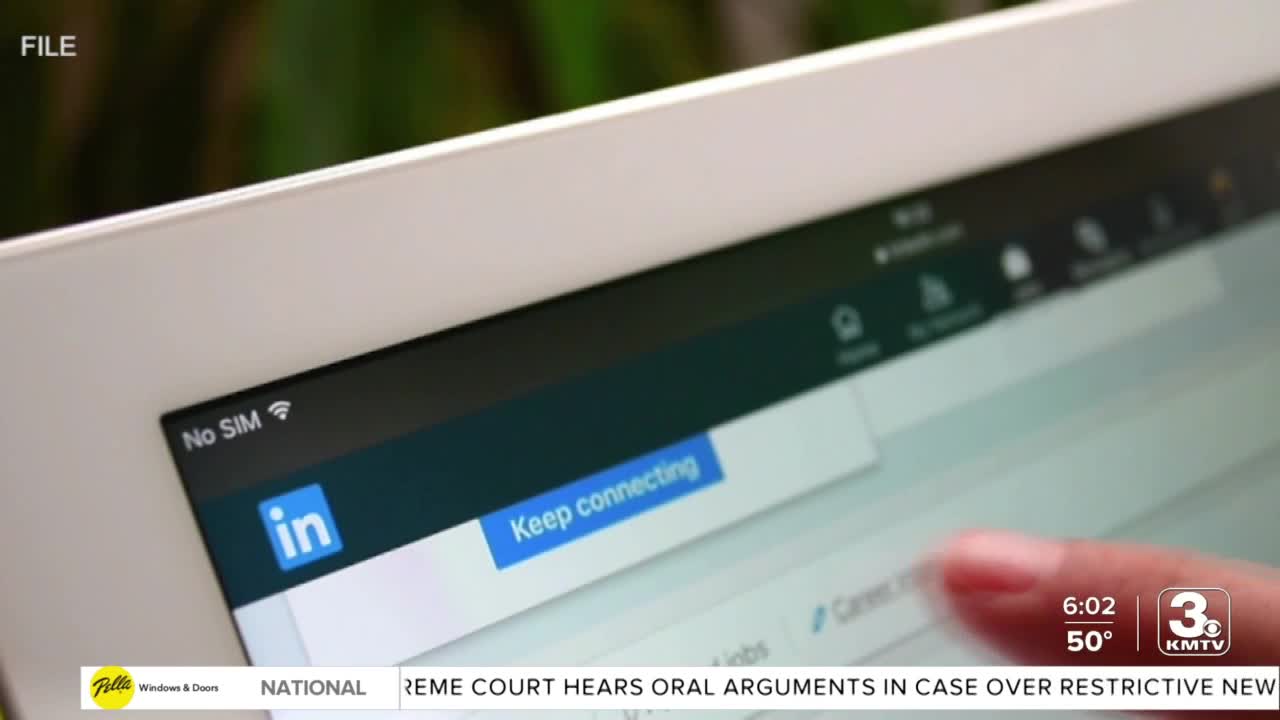OMAHA, Neb. (KMTV) — During the pandemic, former Omaha resident Hunter Mulligan realized he wanted something different.
"Just seeing everything that happened and as many people died, and were affected by it negatively, you really got to go for what you are more passionate about and what you enjoy more," Mulligan said.
In Omaha, he was managing government subcontracts. But he wanted to feel more excited about work so he made a change to working with motorcycles in South Dakota.
"What I actually enjoy looking at or watching or researching on my own time personally actually helps and applies to my current job. So, it just makes it a lot more fun, plus I get to be around all these really cool motorcycles and people, that I followed for years and watched them build bikes, and now I just get to be a part of it," Mulligan said.
Mulligan's story is a reflection of the millions of people who are also making transitions.
"They want more meaning in work, they want it to fit their values better, they want the hours to fit their lifestyle. So I'm seeing quite a bit of difference between what people are needing prior to COVID and post COVID," Mulligan said.
Omaha Career Coach Cindy Wagner says if you want to make a change you'll have to embark on a "self-discovery."
"What am I good at? What do I love? What are my interests and what kind of job will that fit? And where would I be happier? I think it takes time, it takes discussions with somebody." Wagner said.
According to the Bureau of Labor Statistics the unemployment rate for Omaha is sitting at 1.7%, a historic low.
"Just about everyone that wants a job can seem to land a job. What that generally means is that wages will get up a little bit and the result of that is people start looking for positions that are probably better than what they currently have," UNO Economics Professor Chris Decker said.
He says we've had these waves of resignations in the past.
"When I looked at the recent data, the spike in resignations over the last 8 months or so, has been historically high when you compare it to others and that's nationwide. So yeah, I do stand by the notion that this is cyclical but it's a pretty extreme cycle," Decker said.
"There's probably 20 to 30 thousand people that have left and haven't shown back up yet and those would be people that aren't working and also are not actively seeking work," The Nebraska Department of Labor's Scott Hunzeker said. "They may have dropped out to care for children, returned to education, have family commitments. Maybe health concerns keeping them out of the labor force."
Certain occupations are hit harder than others.
"Right now, the healthcare occupations seem to be the ones that have the most job postings with fewest candidates, specifically registered nurses throughout the state," Hunzeker said.
Ultimately, Wagner believes this pandemic is shifting hearts and minds.
"The goal is to have a job where your values on how you want to impact the world is able to materialize that in some way, that you are making some difference to someone," Wagner said.
"In general, so many of my facets of my well-being have improved from finding a job that's well-suited for me," Mulligan said.
Here are some career assessments:
humanmetrics.com/cgi-win/jtypes2.asp
123test.com/career-test
www.careeronestop.org
For resume help and a job database, visit neworks.nebraska.gov/vosnet
Download our apps today for all of our latest coverage.
Get the latest news and weather delivered straight to your inbox.



